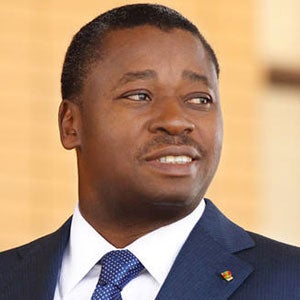The most miserable countries in the world revealed
5 out the 10 ten countries ranked the least happy in the world are situated in East Africa

Your support helps us to tell the story
From reproductive rights to climate change to Big Tech, The Independent is on the ground when the story is developing. Whether it's investigating the financials of Elon Musk's pro-Trump PAC or producing our latest documentary, 'The A Word', which shines a light on the American women fighting for reproductive rights, we know how important it is to parse out the facts from the messaging.
At such a critical moment in US history, we need reporters on the ground. Your donation allows us to keep sending journalists to speak to both sides of the story.
The Independent is trusted by Americans across the entire political spectrum. And unlike many other quality news outlets, we choose not to lock Americans out of our reporting and analysis with paywalls. We believe quality journalism should be available to everyone, paid for by those who can afford it.
Your support makes all the difference.A new report has revealed Togo to be most depressing place to live in the world.
The report measures a number of factors including life expectancy, freedom and levels of corruption.
Produced by the Sustainable Solutions Network, it says: “Traditional variables like GDP per capita and healthy life expectancy are widely available. But measures of the quality of the social context… have not been sufficiently surveyed.”
The happiness ranking is a combination of GDP per capita, social support, healthy life expectancy, freedom to make life choices, generosity and perceptions of corruption. It then surveyed a number of people from each country and simply asked them to rate their happiness from 0-10.
The countries are measured on a scale called the Cantril ladder and contrasted against a theoretical “dystopia”, with values equal to the lowest national scores for each variable between 2012-2014. But what's so bad about Togo?
The countries closest to ‘Dystopia’:
1. Togo
2. Burundi
3. Syria
4. Benin
5. Rwanda
6. Afghanistan
7. Burkina Faso
8. Ivory Coast
9. Guinea
10. Chad
What’s the problem?
Togo’s GDP has more than doubled since 2005 and in 2014 economic growth reached 5.6 per cent so what’s gone so wrong?
The reasons behind the East African country's position at the bottom of the ladder perhaps starts at the highest level, with a government frequently accused of human rights abuses and corruption.
In an election tomorrow President Faure Gnassingbe is set to continue his family’s 48–year rule of the country. They have been accused of altering election results and suppressing democracy on numerous occasions.

Widespread violence has followed almost every political election and, following the 2005 presidential vote, protests left over 400 dead.
In 2010 the opposition unsuccessfully contested official results that handed Mr Gnassingbe a second term and last year opposition protests failed to bring about constitutional changes limiting the president to two terms in office.
Critics say that the benefits of any economic growth that the country has seen have gone straight to an already wealthy minority and 2011 statistics showed that 58 per cent of the population was living on less than a dollar a day.
According to statistics from World Bank the life expectancy is just 56.15, 172nd in the world.
Togo had an overall happiness score of 2.8, only 0.7 above the theoretical dystopia and almost five points behind Switzerland, which was revealed as the world’s happiest country with a rating of 7.587.
Syria’s position as the third least happy country in the world comes as no surprise after it has been wracked by a brutal civil war and the rise of terrorist group Isis over the last few years while Iraq, similarly affected by the rise of the terrorist group, was perhaps surprisingly highly rated as the 112th happiest country in the world.
The UK is the world’s 21st happiest country, ranking highly for social support, GDP per capita and life expectancy.
The SDSMN is comprised of people from academia, government and the private sector and was first launched in 2012.
Join our commenting forum
Join thought-provoking conversations, follow other Independent readers and see their replies
Comments